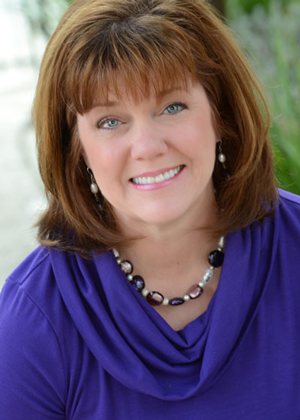Mitt Romney recently described contraception coverage and abortion rights as “shiny objects” used by Democrats to distract voters from “more important” issues. At a moment in which women’s reproductive rights are being dismissed by America’s Republican presidential hopeful, it is important for us to know our history! For me, the advent of the birth control pill accompanied a defining moment in which I realized my “power to.”
I discuss my life journey—from Texas to working with Kathleen Turner on a memoir to why 2012 may finally again be the year of the woman—with writer Susan Tolles for this interview. The article originally appeared on Susan’s website Flourish Over 50.
SUSAN TOLLES: Welcome to Flourish Over 50. I’m just so excited that you’re here, and I want to talk about your lifelong passion for really empowering women.
GLORIA FELDT: I first had to empower myself. I didn’t start out knowing much about this power stuff. I grew up in small towns in Texas in the 1940-50s, where girls were not encouraged to get an education, have a career, or have real aspirations for themselves. I mean, my family actually did expect me to get educated, but only in order to be a better mother, a better mate, etc. So I really didn’t start out thinking that I had power and agency myself; I grew thinking that the agency was outside of myself. I had to learn by trial-and-error along the way, and I am still learning it.
SUSAN TOLLES: Right, we all are. It’s always a work in progress.
GLORIA FELDT: It is a work in progress. So I’ll give you the real quick rundown of what happened: I was a teen mom; I got pregnant, married my high school sweetheart when I was 15. I had three children, bing-bing-bing, and then I was 20 years old. I think it was the combination of maturity and the advent of the birth control pill where I just woke up. That was one defining moment.
I realized two things: Firstly, I had three children, and although I had a husband who was earning a salary, I kept thinking, “What if I have to support these children?” I had no employable skills whatsoever. Secondly, I was starting to get a little bored and I realized that this life was not as much fun as I thought it was going to be. I, in fact, had a brain and I was eager to go to school.
And so, I finished high school by correspondence, and then the birth control pill came along. It was that defining moment that allowed me to see that I could create a life for myself. I could plan. If I wanted to have more children, I could have them by my own choice at whatever time I wanted to. But if I didn’t want to have more, then I had that option, and it meant I could go to college. I would say that was the first big defining moment for me. There were a series of other moments.
So I often ask people when I speak, “When did you know you had the power to _______?”
SUSAN TOLLES: Hmm, great question.
GLORIA FELDT: It’s a really interesting question. Some people have these blinding moments of light, and for others it’s a gradual process. For me, it was a gradual process. I sort of fell into my first job with Planned Parenthood; I’d been teaching at Head Start. I got to know the organization because of a co- worker who was on the board there. I was finally able to finish my degree [when] the University of Texas opened a branch in Odessa. It took me 12 years to finish, because I had to wait for UTPB (The University of Texas-Permian Basin) to get there.
 Photo: Susan kindly sent me pictures of beautiful Texas bluebonnets after I told her I was pining for them. They make me feel like I’m “home.”
Photo: Susan kindly sent me pictures of beautiful Texas bluebonnets after I told her I was pining for them. They make me feel like I’m “home.”
SUSAN TOLLES: Oh, goodness. Bless your heart for living in Odessa!
GLORIA FELDT: Yeah, no kidding! And that was the big city at that time – that was the biggest one I’d lived in. At that point I was able to finish my degree and I had to do a paper on Planned Parenthood. In the course of doing that, I met the executive directors and board members and nurse practitioners. Two weeks later the executive director called me and said, “I’m leaving. You should submit a resume.”
I had never met this woman before. I thought, “Well, you know, I’ve never had a real job interview and I’m imminently unqualified for this. It’ll be a really good experience to put a resume together and go have an interview.”
Well, as they say, the rest is history, and 30 years later, I left Planned Parenthood as the national president.
SUSAN TOLLES: Wow. Like you say, Don’t follow your dream – lead it.
Lead it, yes. You were leading your dream, and you were becoming a leader and not following anybody at that point. Good for you!
GLORIA FELDT: After I left Planned Parenthood I had already written two books. I had been wanting to write since I was five years old. I was persuaded by my book agent to write a book with Kathleen Turner, the actress, about her life. I was told that it would be helping other women if I would chronicle the life of this powerful woman. Well, in order to sell the book, publishers wanted “celebrity.” So it ended up becoming a memoir of Kathleen rather than my biography of her.
Kathleen and I have a great relationship and we are 50/50 partners the whole way; we never had an issue. When we were at a publishing office, having a big publicity meeting, the publicist turned his back and looked only at Kathleen. In that moment I thought, “Gloria, you have done it again. You are speaking in somebody else’s voice.”
It’s just like I loved Planned Parenthood for those thirty years. I was always speaking in its voice; my own voice didn’t come out. I was always speaking for the organization. And now I was speaking in Kathleen’s voice and nobody cared about me. I thought, “I’ve got things I want to say!”
And so, there I was, already in my mid-60s and a grandmother many times over before I really started feeling like I was embracing my own power.
SUSAN TOLLES: Before I read the book, I thought, “Okay, this is really going to be geared toward women who really want to get out and be front and center.” But then I realized that this is exactly what I teach! And interestingly enough, I have created a program myself called, Powerful Me: Embrace Your Passion, Purpose and Power for an Extraordinary Future. You know, these are the same principles that I teach women in midlife who are just searching for an identity. So it does apply across the board.
GLORIA FELDT: Also, I see so many books that tell women what’s wrong with them; I realized I didn’t want to do that. I’m a positive, optimistic person to begin with. Secondly, I have been an activist all my life, so my interest is not in saying, “Well, research shows that this is what is wrong with you.” My interest is in saying, “Let’s figure out what to do.” I prefer to give concrete, specific, bite-size, usable tools and tips that can help you in whatever relationships you’re negotiating or whatever goals you have in your life.
Not only do we already have what we need inside of us, we also (without always realizing it) have external power. For example, women purchase 85% of the consumer goods. That’s huge power! We could have almost any consumer product designed the way we want it, if we got together and said, for example, “We want this kind of, food for our children in our schools.” I have this personal mission: I want pockets, big pockets in my clothes.[Laughter] I know that if enough women got together and started telling designers, “We want pockets,” we would have pockets.
SUSAN TOLLES: You say in one media release that 2012 will be the Year of the Woman. Tell us a little bit about that.
GLORIA FELDT: People love to dub years, “Year of the ___,” and this is supposed to be another Year of the Woman. The way I see it, this can be the Year of the Woman if we decide that it’s going to be. Clearly, women are 51% of the population, we are 54% of the voters, but we are only 17% of Congress and less than 25% of state legislatures. That Year of the Woman term is usually applied to politics.
You can’t win if you don’t run, and women are half as likely as men to even think about running for political office. I’ve talked to women who run organizations that help women run for office, such as the White House Project and the Women’s Campaign Forum.
Republican, Democrat, nonpartisan- they all said the same thing: A man will get up in the morning, look at himself in the mirror, and say, “Well, I believe I’ll run for Senate.” He will not question whether he’s qualified or whether he should even run.
A woman may be interested in politics, but she’ll think, “Well, maybe I should learn something first. I should probably take some courses. I should probably work in a few campaigns.” While this is a good idea, by the time she runs, the man was already elected and received the committee chairmanship who sets the agenda. So she’s a little bit too late for the party.
 SUSAN TOLLES: Well, I love your book and I’m just so excited to bring this to Flourish Over 50, and it really is an excellent book for the month. Again, it’s not just for women who want to be out there front and center in the business and corporate and political world; it’s really for any woman. You know, step in to your power as uncomfortable as that word is – just step into your power.
SUSAN TOLLES: Well, I love your book and I’m just so excited to bring this to Flourish Over 50, and it really is an excellent book for the month. Again, it’s not just for women who want to be out there front and center in the business and corporate and political world; it’s really for any woman. You know, step in to your power as uncomfortable as that word is – just step into your power.
GLORIA FELDT: Step into it and then walk with intention, deliberately deciding where you want to go. I love that you adopted the notion leading your own dreams, because I do think that’s so important. We’re better at responding; we’re used to following when we dance, right? We’re used to being responsive to people, to caring about what they think about us – and that’s good. But there’s a balance in it.
The world would be better if more men had those same qualities, and I think the world would also be better as women become more comfortable leading themselves.
SUSAN TOLLES: Absolutely – and to never think it’s too late. Look at you, you said you were in your 60s before you finally started really stepping in there and seizing that.
GLORIA FELDT: Exactly. Who knows what’s going to happen in my 70s?
Gloria Feldt
Latest posts by Gloria Feldt (Posts)
- This Blog is No Longer Active… - March 17, 2014
- Women’s Equality Day and the Civil Rights March - August 26, 2013
- Stuck? Change Your Relationship With Power - July 21, 2013






 "Female Writers Kicking Up Literary Dust"
"Female Writers Kicking Up Literary Dust"
One Response to Flourish Over 50: Gloria and Susan Tolles Talk Texas Pasts and Flourishing Futures